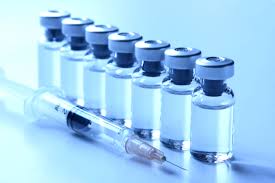
WHO Report: Vaccines Could Drastically Cut Antibiotic Use and Combat Antimicrobial Resistance
A new report from the World Health Organization (WHO) reveals that vaccines targeting 24 key pathogens could reduce global antibiotic usage by 22%, amounting to 2.5 billion fewer daily doses annually. This finding bolsters efforts to combat the growing threat of antimicrobial resistance (AMR), which occurs when bacteria, viruses, fungi, and parasites evolve to resist antimicrobial medicines. This resistance leads to more severe illnesses, higher mortality rates, and the spread of infections that are increasingly difficult to treat. While some vaccines already exist but are underutilized, others need to be developed urgently to make a significant impact.
AMR is primarily driven by the overuse and misuse of antimicrobial drugs, but at the same time, many parts of the world still face limited access to these essential medications. Every year, nearly 5 million deaths globally are associated with AMR. Vaccines offer a crucial solution to this problem as they prevent infections, reduce the need for antimicrobials, and slow the development and spread of drug-resistant pathogens. The new WHO report builds on a previous study published in BMJ Global Health in 2023, which highlighted the important role vaccines can play in reducing AMR-related mortality.
The report estimates that existing vaccines, such as those for pneumococcal pneumonia, Haemophilus influenzae type B (Hib), and typhoid, could prevent up to 106,000 deaths linked to AMR each year. Additionally, new vaccines for diseases like tuberculosis (TB) and Klebsiella pneumoniae could prevent an additional 543,000 deaths annually once developed and distributed globally. While new TB vaccines are currently in clinical trials, a vaccine for Klebsiella pneumoniae is still in the early stages of development.
WHO Director-General Dr. Tedros Adhanom Ghebreyesus emphasized the importance of vaccines in preventing infections, stating that prevention is always better than cure. Increasing access to existing vaccines and developing new ones for critical diseases like tuberculosis is crucial for saving lives and curbing the spread of AMR.
Vaccinated individuals are less likely to develop infections and are protected from secondary infections that might require antimicrobial treatment or hospitalization. This not only protects their health but also reduces the strain on healthcare systems. The WHO report analyzed the effectiveness of both licensed vaccines and those in development, showing that vaccines for diseases such as Streptococcus pneumoniae, typhoid, and malaria could significantly reduce the use of antibiotics. For example, vaccinating 90% of children and older adults against Streptococcus pneumoniae could save 33 million antibiotic doses annually, while accelerating the introduction of typhoid vaccines in high-burden countries could reduce the need for 45 million antibiotic doses each year.
The report also highlights the potential for new tuberculosis vaccines to have the most significant impact, potentially saving between 1.2 to 1.9 billion antibiotic doses annually. This would represent a significant portion of the 11.3 billion doses currently used to treat the diseases covered in the report.
In addition to their health benefits, vaccines could also lead to substantial economic savings. The global cost of treating drug-resistant infections in hospitals is estimated at $730 billion each year. By introducing vaccines for all the pathogens evaluated in the WHO report, these hospital costs could be reduced by a third, alleviating the financial burden on healthcare systems worldwide.
Addressing AMR requires a comprehensive, people-centered approach that includes preventing, diagnosing, and treating infections. Vaccination is a core component of this strategy, and its impact is even greater when combined with other preventive and diagnostic measures. At the recent 79th United Nations General Assembly High-Level Meeting on AMR, world leaders committed to reducing the 4.95 million deaths associated with bacterial AMR by 10% by 2030. The political declaration emphasized the importance of access to vaccines, medicines, and diagnostics, and called for incentives and financing mechanisms to support health research, innovation, and development in addressing AMR.
Vaccines offer a powerful and cost-effective tool in the fight against antimicrobial resistance. Their widespread use has the potential to save millions of lives, reduce healthcare costs, and protect future generations from the growing threat of drug-resistant infections. However, achieving these goals will require global cooperation, increased investment in vaccine development, and ensuring equitable access to both new and existing vaccines.